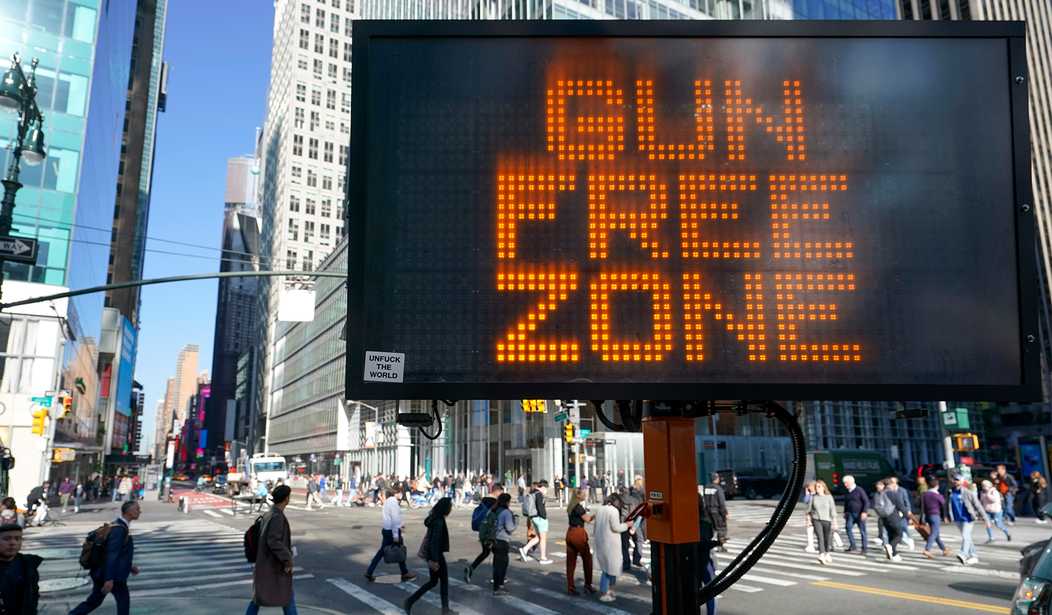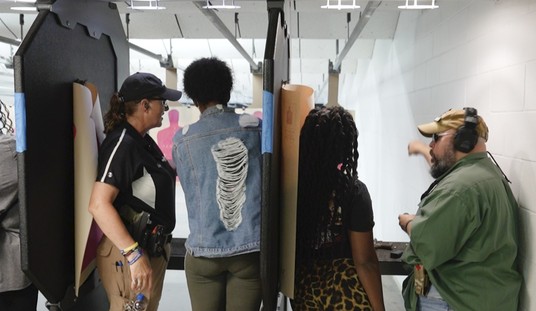The newest "study" to come from the anti-gunners at UC-Davis's Violence Prevention Research Program suggests that "gun-free zones" actually reduce mass shootings, but in order to reach their conclusion the academics had to play fast and loose with their data.
The researchers looked at two different groups of locations; 150 places where active shootings had taken place, alongside a control group of 150 locations that did not experience a mass shooting. The researchers then tried to figure out which of these locations were "gun-free zones", and determined that 48% of mass shootings happened in places where lawful carry was prohibited, which they claim demonstrates that "gun-free zones" aren't disproportionately the site of mass shootings.
The problem is that the researchers specifically excluded a number of "gun-free zones" where mass shootings had taken place. Why?
“Whenever there was popular press around a different topic related to gun violence prevention, one of the more prominent responses by gun-rights activists, often right in the comments, was to look into gun-free zones. They believe that gun-free zones were proof that places without guns were less safe. I decided to look into that to see if it was true,” said study author Paul M. Reeping, a postdoctoral fellow at the Violence Prevention Research Program at the University of California, Davis.
The research team conducted a case-control study, focusing on active shootings that occurred in the United States between 2014 and 2020. Active shootings, as defined in this study, refer to incidents where one or more individuals intentionally shoot at bystanders in public spaces. The study excluded shootings in schools because all schools are federally mandated gun-free zones, which would skew the comparison.
No, it wouldn't skew the comparison. It would, however, likely raise the percentage of shootings in "gun-free zones" to above 50%, which would at the very least provide more evidence that "gun-free zones" don't stop individuals intent on committing mass murder.
While the findings are robust, the researchers acknowledged some limitations. Notably, the study did not include schools, despite them being frequent subjects of gun-free zone debates. Schools were excluded because they are universally gun-free by law, making it impossible to compare them to similar establishments where guns are allowed. This exclusion means the study’s findings do not apply to schools, which are often a key focus in debates about gun-free zones.
That's a bogus excuse. There are hundreds of school districts around the country with armed school staff. The federal "Gun-Free School Zones Act" also specifically exempts individuals if they possess a carry license issued by the state where the school zone is located. Depending on the laws of their state, those gun owners can drop off their kids or even enter schools while lawfully armed.
In other words, there was no real reason to exclude schools from the researchers' data, unless perhaps it was to intentionally skew the data in a direction that promotes "gun-free zones". And even after intentionally discarding schools from their research, the academics at UC-Davis basically found that mass shootings happen in "gun-free zones" almost as frequently as they do in places where lawful carry is allowed.
Reeping claims that the results of his study "is in line with most research that finds that more guns result in more gun crimes,” which is another canard from the anti-gunners. If that were the case, then "gun crimes" would rise each and every year, but that's not what crime statistics show. In fact, even though we're just a few years away from the Great Gun Run of 2020, where millions of Americans became gun owners for the very first time, FBI statistics show a sharp decline in homicides across the U.S.









Join the conversation as a VIP Member